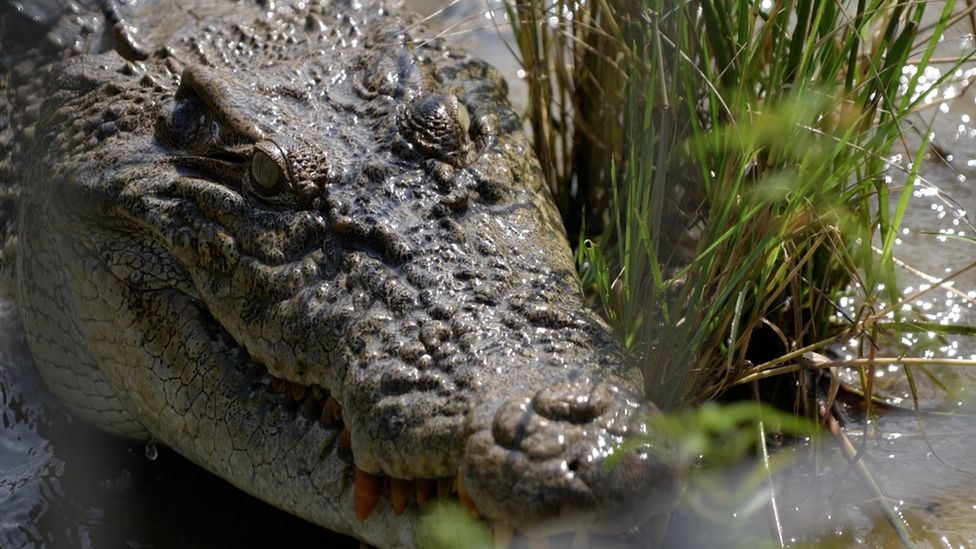-

-
-
Loading

Loading

In September last year, a woman named Sariah went to collect water from a pit near her home on Bangka Island in Indonesia. Unbeknownst to her, a 3-meter-long saltwater crocodile was lurking in the pit, observing as she filled her bucket. The 54-year-old recounts how she decided to bathe in the calm water, but was suddenly attacked by the crocodile, which emerged out of nowhere and dragged her into the water by her left arm. Indonesia experiences the highest number of saltwater crocodile attacks in the world, with about 1,000 attacks in the past decade, resulting in over 450 deaths. Nearly 90 of these attacks occurred on Bangka and the neighboring Belitung island. The island, known for its tin mining industry, has a population of one million, with 80% of them being miners. Around 60% of the island's land is already converted into tin mines, many of which are illegal. This deforestation has left behind numerous craters, creating an environment where saltwater crocodiles are pushed out of their natural habitats and into abandoned and active mining pits close to human settlements, leading to an increase in attacks. Last year's prolonged dry season exacerbated the situation as it dried up the wells in front of people's homes, forcing them to rely on the abandoned pits for water. The article mentions a case where a miner was almost killed by a crocodile while washing tin ore in another pit. The saltwater crocodile is the largest reptile in the world and can reach lengths of over 7 meters. Crocodiles are protected species in Indonesia, but in Bangka Island, they are often killed after an attack instead of being handed over to conservation agencies. Local superstitions also play a role, as killing the crocodiles and burying them in rituals is seen as avoiding bad luck for the village. The island's only wildlife rescue and conservation center, Alobi, argues with locals to save the crocodiles, housing 34 rescued crocodiles in an overcrowded pond. The center relies on donations for funding and works with local farmers to provide food for the crocodiles. However, the rescue center cannot continue to accommodate more crocodiles, and releasing them back into the wild is not a viable option. The root of the problem lies in illegal mining, which is driving the crocodiles out of their habitats as people venture further into the sea in search of tin. To address illegal mining, the Indonesian government has taken the unusual approach of legalizing it and requiring miners to restore the environment in exchange for obtaining a license. However, skepticism remains about whether miners will actually carry out restoration efforts due to weak law enforcement. Sariah, who survived the crocodile attack, believes that miners do not care about the environment and has not returned to the pits since the incident. She still experiences physical and emotional pain from the attack.